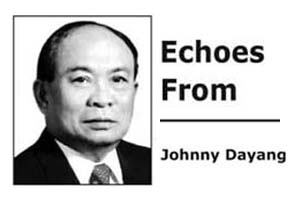AN exciting new role attributed to the Fourth Estate in recent days, postulated no less by Malacañang, is the transformation of the journalists as coup plotters. It’s an interesting twist but it portrays harmless people who report news in print, broadcast, and social media as state foes.
Of course, in the annals of Philippine press there were brave souls who rose to fight the colonists, while others joined the underground movement to topple a dictatorship. But in a world profusely immersed in technological sophistication, this kind of rebels has become a rarity.
To accuse media of plotting to overthrow a regime is more of a litmus test for press freedom which, for so long, has been subjected to a cornucopia of threats. Unlike law enforcers who have weapons to use against their preys, journalists brandish only grit in chasing news.
The intriguing ‘oust Duterte plot’ which the presidential mouthpiece traced to the President, is an amateur operation and a hastily-prepared template that’s full of inanities and lacking in substance and logic. Interestingly, all the major players in the matrix are mostly journalists and militant lawyers but surprisingly does not include the rabid political opposition.
Labeling the media as putschists leaves a bad taste in the mouth and creates an impression that people who criticize and expose anomalies in government are always fair game for those want them silenced. That’s not just an authentic display of being onion-skinned; it also disrespects the role the press plays in creating a stable, free, and democratic government.
Admittedly, the press is imbued with the task to report events as they happen. There are confusions though that can occur in the reportage, but oversights cannot not be used as excuse in dragging journalists to the gladiator ring on account of an issue it is not clearly involved.
The much-ballyhooed overthrow plot, pundits observe, is a trial balloon designed chiefly to gauge public reaction. For who would in his right mind even attempt to do that suicidal intent at a time when government popularity rating is very high?
Malacañang should treat the journalists, the opposition, and the militants as reasonable critics whose intentions are not in contradiction with the principle of critical collaboration. Accusing them as putschists only gives rise to the idea that the national leadership is in panic mode.
The government, as a matter of responsibility, must willfully present itself as model of partnership. If it has overlooked the bloodstained hands of insurgents and wants to talk peace with troublemakers, with more reason that it has to shake hands with the media.


